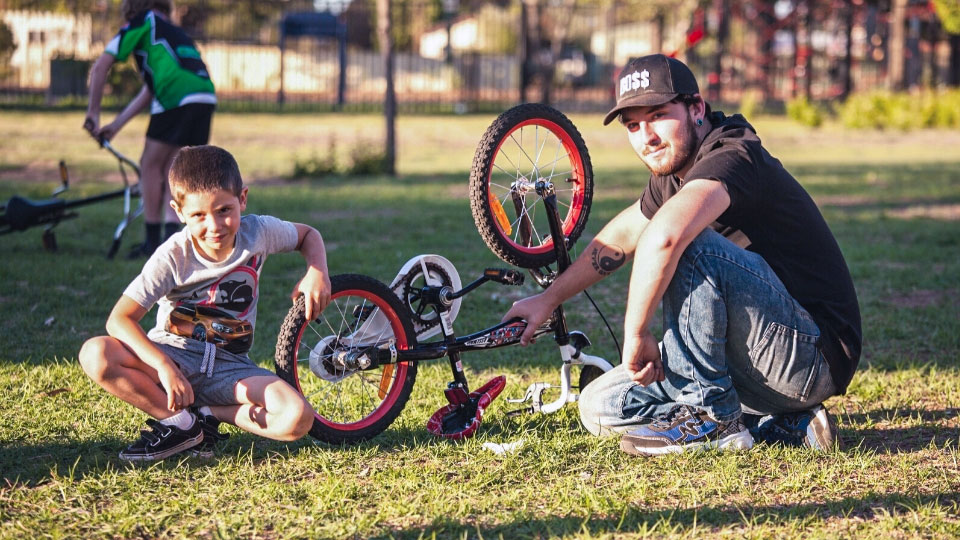Current research1 has found that dads who engage with their children’s schooling can make a huge difference in the child’s education and academic advancement.
Attending parent/teacher evenings, helping the Parents’ Association, volunteering for school sports, attending class BBQ’s – the list goes on. These are just some of the ways dads can connect with their children’s learning and be an important part of their school life.
When available, dads can help in the classroom, go on excursions or be a class mystery guest during the year.
There are a few tricks when helping with homework.
You don’t want to do the homework for your child (as they won’t learn much that way – and you’re going to get upset if you’re given a D grad on your work).
So, how can we best help our children with their schoolwork?
- Facilitate, don’t tell. Help your child arrive at the answer rather than telling them. Use questions as prompts.
- Stimulate interest. Awaken their curiosity by asking ‘why?’, pointing things out and telling great stories.
- Encourage creativity. Ask questions like, “Can this be done another way?” and, “How do you think we should tackle this problem?”
- Set the bar high but make sure expectations are realistic. Don’t crush your child by being a ‘tiger dad’ (they often eat their young!) but, don’t go soft either. If you child aims at nothing, they will probably hit it!
- Be flexible in expectations. What you’re good at is not necessarily what they’re good at. There are many ways to be gifted, and there are many ways to excel. Let your child express their own character – not yours!
- Teach organisation and time-management. Teach your kids about checklists (for the school bag), daily planners, to-do lists etc. Model and encourage the use of these organisational skills.
- Be a learner yourself. A child who sees their father learning will often mimic that behaviour. Remember to talk with your kids about what you are learning each week, at your workplace or otherwise.
Remember that learning should not be restricted to school-work. There is a whole curriculum of life-skills that a father can teach a child.
For example, a father can:
- Model empathy, kindness and thoughtfulness.
- Teach balanced reactions – showing grace through, and resilience through mishaps.
- Help the development of life-skills such as:
– budgeting, saving, and money management
– cooking, cleaning, ironing and barbequing
– staying healthy, exercising well and eating properly
– maintaining a good work/life balance
– being socially appropriate, respectful and well-mannered
– gardening, fishing, sporting skills
– changing a car tyre or a light globe
Never underestimate the impact a good father can have, not just by providing for and protecting their kids, but also though teaching.
- Wood, L., & Lambin, E. (2013) How fathers and father figures can shape child health and wellbeing
This article was written by Dr Tim Hawkes – ambassador of The Fathering Project



